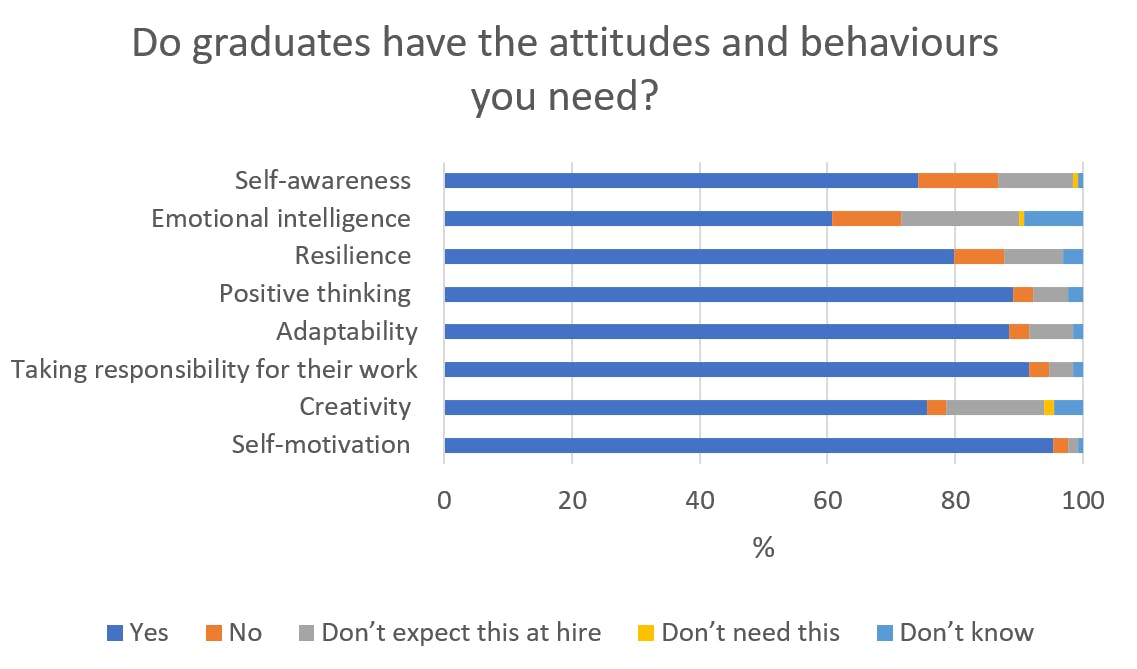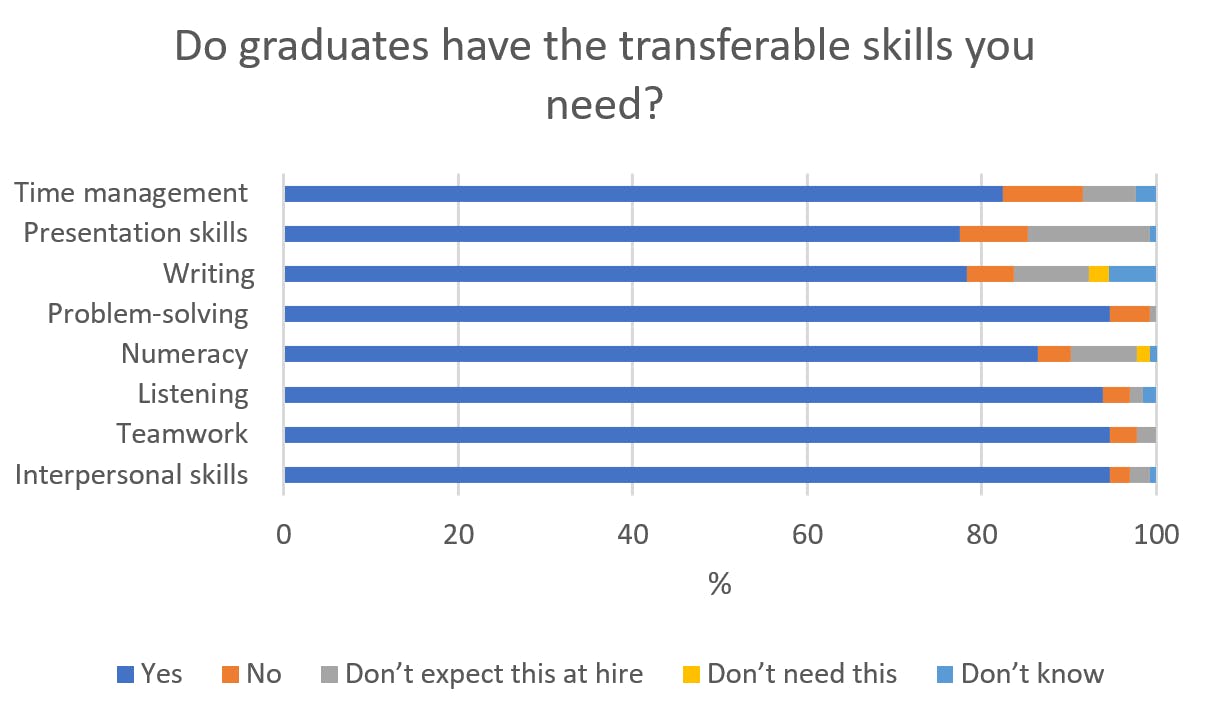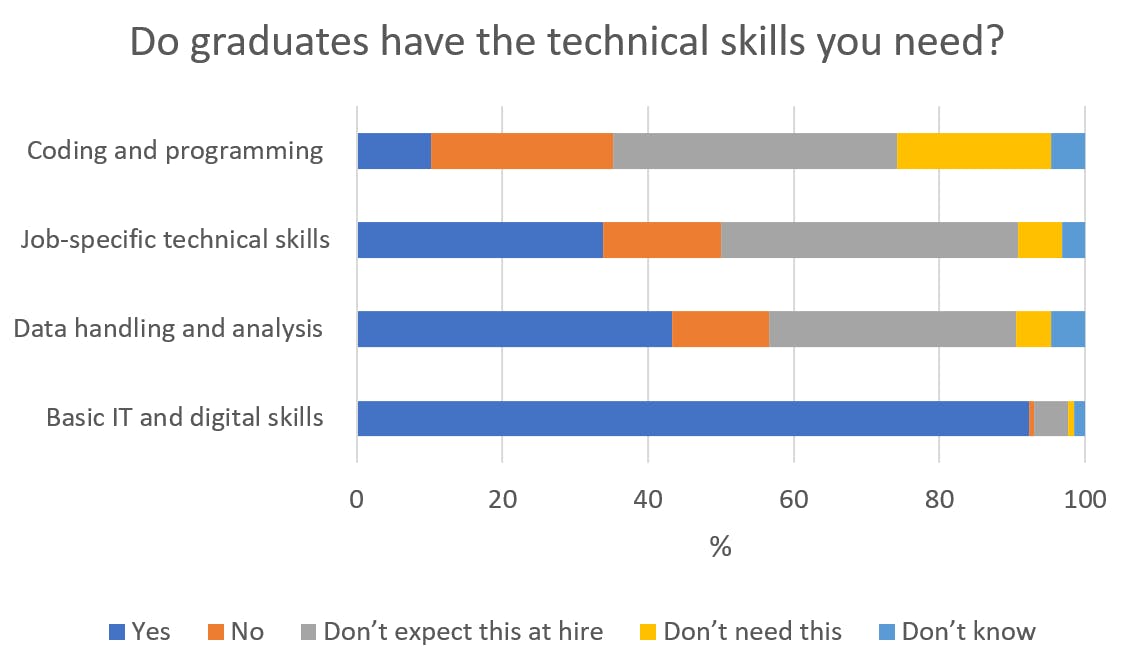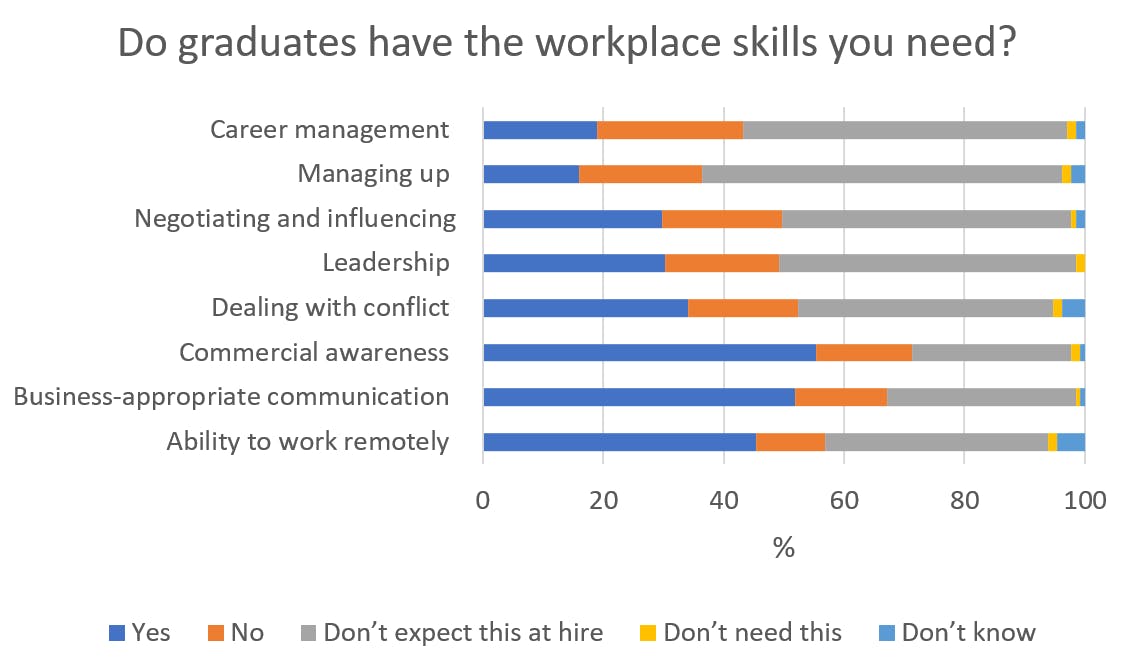Every year we hear that employers are not happy with graduates' skills at the point of hire. Tristram Hooley argues that new research by the Institute of Student Employers (ISE) reveals a more complicated situation
It is a story as old as the hills. Graduates arrive in the workplace to find that it is a big jump from education into employment, employers grumble about skills and universities shrug and lean on the careers service a bit harder. The perennial nature of complaints about graduates' skills has diminished its power, leaving employers often feeling like the boy who cried wolf.
ISE has always been careful about amplifying these complaints about graduates' skills. Of course, employers would always like a bit more work readiness from the students that they hire, but this doesn't mean that there is a fundamental problem. If graduates really lacked employability, then they wouldn't be finding good, high paid jobs in such large numbers. As we represent around 300 of the largest graduate employers, each bringing on board tens or even hundreds of new graduates every year, it would be a bit disingenuous to say that students weren't employable.
In fact, as our annual development survey shows, employers invest heavily in building students' skills once they join the organisation. The typical ISE employer spent £3,054 on training and development for each of its hires this year. Most are employing for potential rather than a particular skillset.
But, this doesn’t mean that there aren't issues related to what graduates can and can't do at the point of hire. This year we are finding that some of these skills issues are coming to the fore as employers are under pressure due to disrupted working patterns and a faltering economy.
So, in 2021 we decided that it was time to have another look at graduates' skills and how employers were rating the students that they were appointing.
The good news
Let's start with the good news. Graduate employers are broadly positive about students' attitudes and behaviours. Most think that students have a good attitude and behave in the kind of way that they would expect for a new hire. Yes, they would like students to be a bit more self-aware and to have a bit more emotional intelligence, but overall, this is an area of strength.

Similarly, it appears that all of those years of employability programmes and transferable skills training have paid off. Most employers recognise that students have learnt a lot during their period at university that they can redeploy in the workplace. Time-management could always be improved and presentation skills sharpened up, but again the overwhelming picture here is a positive one.

The bad news
While employers are pretty positive about students' attitudes and behaviours and their transferable skills, they are less positive about their technical skills and their workplace skills.
With respect to technical skills employers raises several concerns. While they are generally pretty convinced by students' general IT skills, 25% raised concerns that they were not able to find the coding and programming skills they need, 16% about the lack of job-specific technical skills and 13% the lack of data handling and analytical skills.
Many employers don't expect students to be able to deliver these skills at the point of hire, but there are clearly a substantial minority who are frustrated about the difficulty of finding the technical skills they need.

A similar picture emerges when we look at a group of skills that we describe as workplace skills. These are the things that you don't necessarily need to build up in education, but which prove to be critical once you move into the workplace. Employers were as frustrated about the difficulty of finding students who weren't able to manage their career or their relationships with colleagues, as they were with the lack of technical skills.

Reflections on graduates' skills
In many ways the picture that I've described is probably the one that you would have expected. Graduates emerge from universities as polished young people with a range of transferable skills. But, they have to wait until they get into employment before they really start to develop the technical and workplace skills that employers need.
The collapse of work experience and internships during the pandemic has undoubtedly made things worse. The overwhelming majority of employers (78%) agree that work experience enhances graduates' skills. The uncertainty in the economy probably heightens this as employers are looking for more oven-ready graduates than normal, given that they may have to onboard and manage them remotely and need staff who can contribute to the shaky bottom line as soon as possible.
Despite the unique context of 2020 and 2021, universities would be advised not just to shrug. Attending to the skills that employers want suggests the need to develop core course content (for example by foregrounding real world analytical skills), to increase the focus on career and workplace education within HE and of course to continue to embed work experience and other kinds of employer engagement into the student experience.
The next few years are going to be challenging ones for the economy. Both employer and universities have an important role to play in ensuring the pipeline of skills continues to flow.
The views and opinions expressed in this article are those of the author(s) and do not necessarily reflect the position of Prospects/Jisc.
Was this page useful?
Thank you for your feedback
